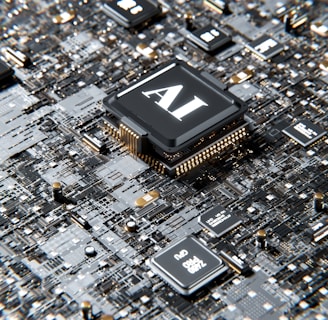Is AI Really Overpowering Human Intelligence? — A Real Developer’s Point of View
AI is an incredibly powerful and useful tool, it’s still just that — a tool. Like early mobile phones, it can perform many tasks efficiently, but it cannot think.
Abhinav
10/25/20252 min read


As a real developer, I want to clarify what AI is truly capable of — and what it’s not.
I’m a software developer who began learning programming in 2019. I started as a Python and front-end web developer, and within a year, I expanded my knowledge into backend development and database management. Later, I explored Machine Learning, Artificial Intelligence, and Big Data.
So, I believe I’m qualified to answer this question. Most of the people you hear online saying things like “AI will take over human jobs” or “AI will surpass human intelligence” often come from non-engineering backgrounds — mainly from media or content creation. They share opinions, not technical insights.
But as an engineer, I understand how AI actually works and what its future looks like.
A Brief Look at AI’s Origins
AI wasn’t always the sensation it is today. In fact, it started as a failed concept in the early days of computing. Many investors refused to fund AI research because they didn’t see its potential. However, a few passionate researchers continued to experiment, driven by curiosity about how machines could simulate human thought.
AI development continued quietly behind the scenes for decades. That’s why most people didn’t know much about AI until after 2020, when OpenAI released public versions of its models that anyone could use. That’s when AI became mainstream and accessible to everyone.
What AI Really Does
At its core, Artificial Intelligence processes input data — often in the form of tokens — through a neural network made up of interconnected layers and nodes. Using complex mathematical models and probabilistic computations, it predicts the next word or action while maintaining contextual relevance. In simpler terms, AI analyzes patterns and generates output based on existing data.
What AI Can’t Do
While AI is an incredibly powerful and useful tool, it’s still just that — a tool. Like early mobile phones, it can perform many tasks efficiently, but it cannot think. AI lacks rationality, self-awareness, and free will. It doesn’t “understand” — it just predicts.
So, using AI to assist human creativity and problem-solving is a great idea. But allowing it to replace human intelligence or decision-making would be a mistake.
AI should be our tool, not our master.
If you found my perspective insightful, please follow me for more articles like this and subscribe to my newsletter to stay updated.